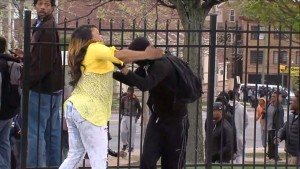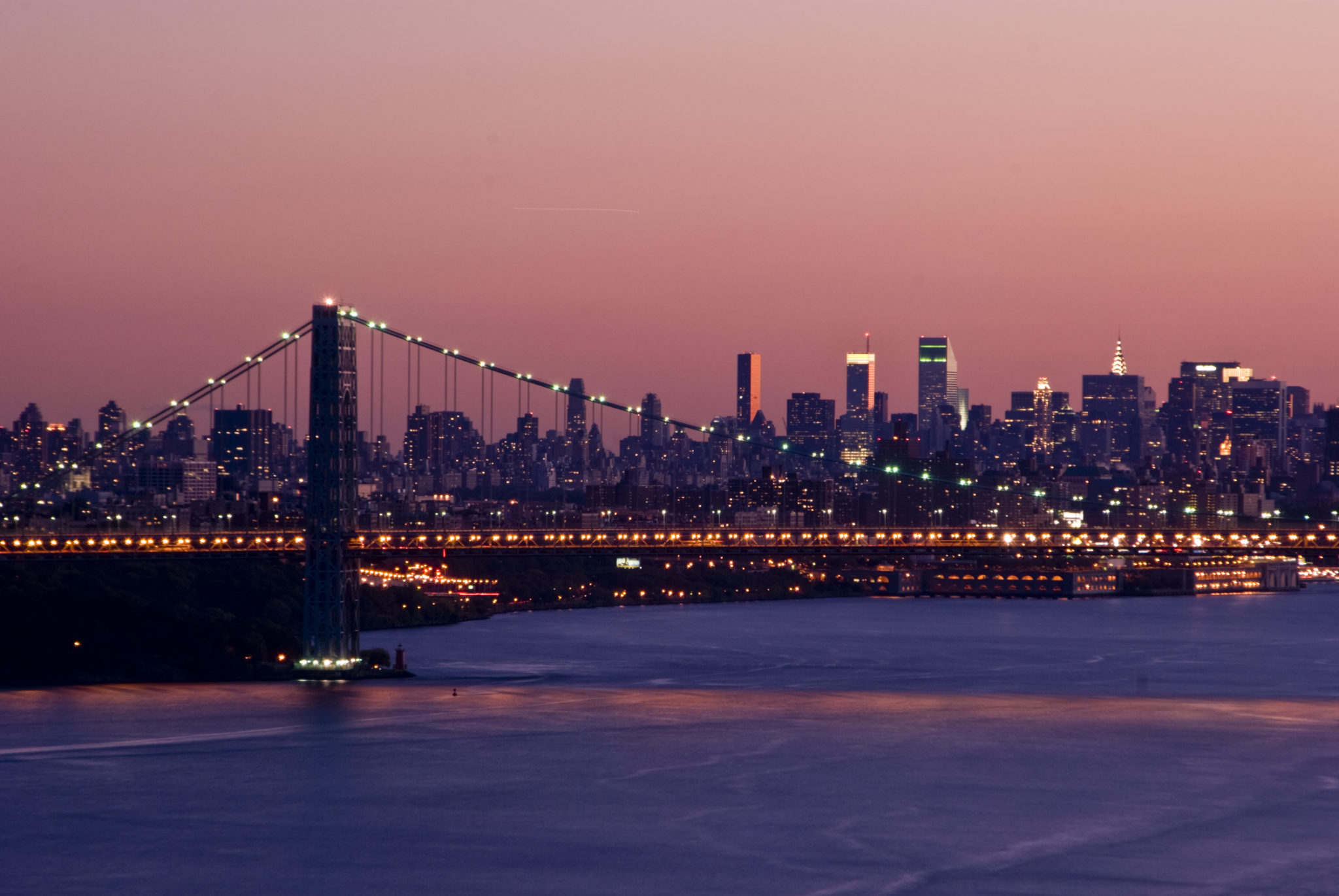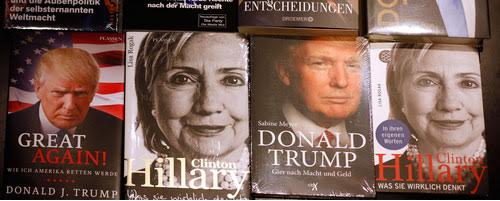
A Baltimore Mom disciplines her son for involvement in riots.
It is fascinating that while so many are watching the rioting in Baltimore and labeling it as essentially ‘black’ behavior or a ‘black’ way to deal with anger, no one seems to be viewing it from the lens that it is essentially male behavior.
Not all male behavior. Let’s clear that up right here. Check your ego at the door, guys, and open your minds
Pull out the lens and get the wider shot of our country and our world — what do you see?
I see males shooting up schools and movie theaters and malls when they feel oppressed or desperate or bullied.
I see males causing great destruction in the streets when their sports team wins (or loses).
I see males engaging in a mob mentality, whether they’re sexually assaulting males or females on college campuses or in church congregations.
I see males beheading people on the other side of the world, pillaging, raping, torturing, terrorizing.
I see people leaving their countries in droves on dangerously overloaded boats, risking everything to save themselves and their children. And what are they running from? Not gangs of angry women with guns and the entitled notion they are allowed to rape whoever they want. They are fleeing from men.
Something is perpetuating this. It is part of the patriarchal structure. It’s about power and dominion. What are we raising and socializing boys to believe about how to communicate anger and valuing and caring for people and property?
While it might seem like I’m trying to play a blame game here, I’m not. This isn’t about being a bad-ass feminist pointing a finger, sitting back, and watching all the men destroy each other.
It’s about our collective consciousness. I’m trying to illustrate that we need to widen our lens. Or switch the filter.
My idealist friends aren’t too pleased to hear me confess of late that I’ve lost all hope for a peaceful world. It is simply not going to happen in my lifetime, no matter who we elect or force out, no matter what treaties we sign.
What we do to make this world a better place, individually, has to start in our minds. We have to ask ourselves what our assumptions are about the guy sitting next to us on the train. Or the woman who’s handing us our change. We are so conditioned to think the white guy has it made, the black guy is out to commit a crime or get a handout, the cop is a rogue or an angel, the child who goes to school hungry has the same shot as the one who’s well-fed, the girl with the clothes that show off her killer bod is easy, the person of color who got ahead was an affirmative action recipient, the financially privileged are vapid.
Why do we see Situation A as isolated rather than a part of larger whole? A drugstore is burning. It doesn’t take a PhD to know it’s because of criminal behavior. But why? Don’t we need to care about the answer to that if we’re going to form an opinion that isn’t knee-jerk?
Why do we automatically classify ourselves into categories – good/bad, black/white, male/female, liberal/conservative, religious/atheist, rich/poor, haves/have nots – instead of realizing that any one of us falls into a whole spectrum of camps?
Why have I been avoiding getting on the phone with conservative family members who will make assumptions about what I believe as pockets of Baltimore erupt in flame? And why am I assuming that they’ll even do that?
Maybe it’s about upending our norms. Getting out of our limited world view and awakening to the fact that, like it or not, we’re all here sharing this space.
Riotous behavior was not born on a street in Baltimore this week.
Maybe what’s coloring my lens is that I spent an evening at the Women in the World summit in New York City recently and came away so touched and reinvigorated on how women and girls are standing up to be heard or to effect change, even when it endangers their lives. Perhaps seeing two mothers embracing on a stage at Lincoln Center, an Israeli and a Palestinian, because they both had sons killed in the conflict and are connected by grief has me focused on what violence has wrought and how it will continue unabated. Who’s going to stop it?
We glorify war and call it the solution. And then we wonder where in the world people would get the idea to inflict harm to be heard.
What a mystery.




